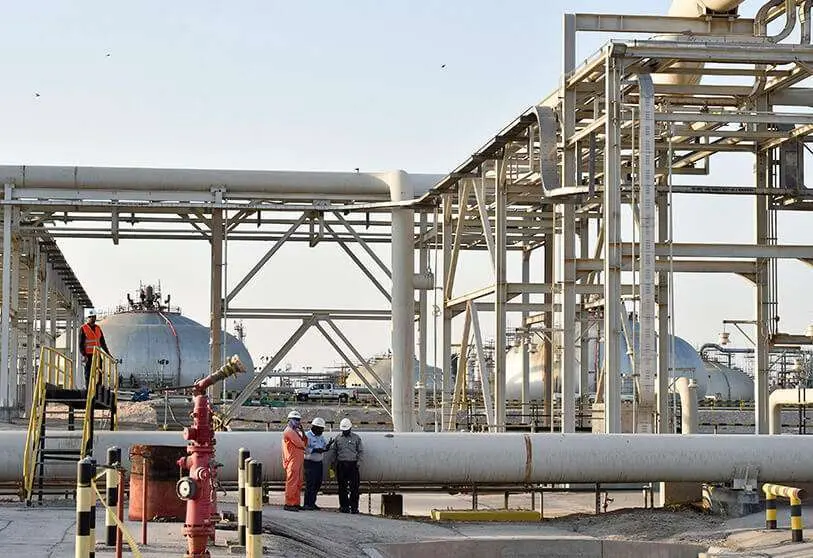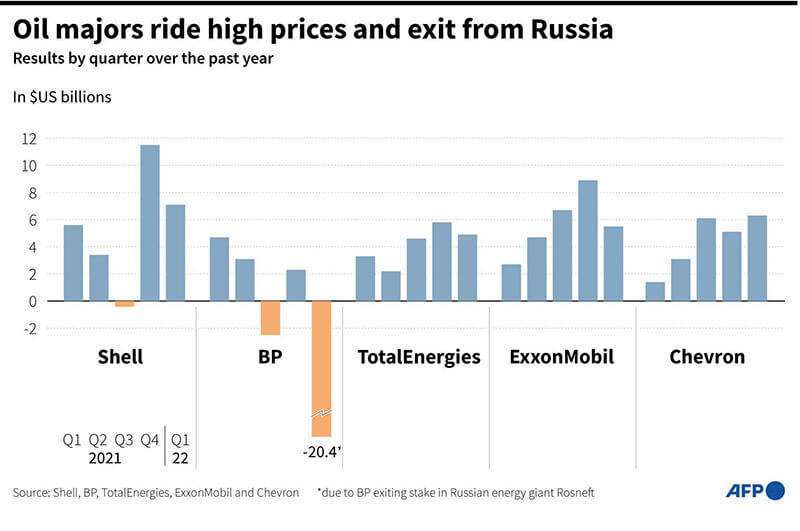A possible oil oversupply could threaten market recovery

OPEC+ warns of a rebound in the oil supply surplus for the remainder of the year as demand growth is likely to slow, a scenario that could threaten the recovery of prices after they reached record levels following the invasion of Russia.
A report, reportedly prepared ahead of the OPEC+ Joint Technical Committee meeting, showed this after the alliance expected a surplus of 1.9 million barrels per day in 2022, an increase of 600,000 barrels per day from previous estimates.
According to the report, oil stocks were expected to exceed 2015 and 2019 stocks during the last quarter of 2022. However, as a consequence of the invasion of Ukraine, the estimates reflect expectations of lower oil demand growth, a fact that was adopted by OPEC+ in its monthly report published in April.

These estimates come as the Organisation of Petroleum Exporting Countries still believe that global demand will grow by 3.67 million barrels per day, which would be 480,000 barrels per day less than initial expectations.
In addition to the Russian invasion, the rise in inflation with the increase in crude oil prices, as well as the spread of the Omicron variant in China, have influenced this upturn. In this line, and despite the efforts to try to stabilise prices and initiate economic recovery during the months of the pandemic, OPEC+ did not manage to increase its production during the month of April, as the members of the Organisation are still subject to a series of requirements and limitations on production capacity that hinder growth.

In contrast to Iraq's efforts to achieve this objective, countries such as Libya and Nigeria have seen their production fall significantly at a time when investment has been reduced. Likewise, Saudi Arabia has not managed to increase its production in accordance with the amount allowed under the agreed quota.
Globally, oil prices continue to hover around $105 per barrel at a time when Europe is trying to reduce its clear dependence on Russian oil. For its part, Saudi Arabia reportedly refused to pump oil more quickly after arguing that "the markets would be well supplied". Thus, Riyadh reportedly refused to give in to Washington's pressure to increase its production, which led the United States to draw on its emergency oil reserves.
Since Russia's invasion of Ukraine, the rise in oil prices has been seriously affected in a context in which fears of a possible lack of supplies have been raised. This has led to an increase in calls for the bloc to try to alleviate oil market prices.

So far, these demands have not been met. Different analysts point out that it is possible that the policy of gradually increasing production by some 400,000 barrels per day will continue, something that would have begun in May 2021, at a time when the economic recovery after the ravages of the pandemic began to be implemented.
Since the last meeting at the end of March, prices have remained within the same range, with the European benchmark Brent North Sea crude oil barrel fluctuating between 97 and 115 dollars, while the US West Texas Intermediate barrel has fluctuated between 92 and 110 dollars.
According to Mirabaud Asset Management expert John Blassard, OPEC+ countries are facing difficulties in "reaching their production targets". In this context, Libya, which is going through a major political and social crisis and has one of the largest oil reserves on the African continent, has been forced to shut down its oil facilities.

In April, the National Oil Corporation, a body that reports directly to the government, declared a state of "force majeure" and suspended operations at two oil enclaves in the country. In an interview with Agence France-Presse, the National Unity Government's Minister of Oil and Gas, Mohamed Aoun, said that production had "decreased by about 600,000 barrels per day", which would be half of normal production.
In addition, the measures decreed by the European Union to initiate a "boycott" of Russian oil could further affect this situation. In 2021, the EU imported 30% of its oil needs directly from Russia, along with 15 % for use in other means.
The Emirati group Exiniti takes the same position after considering that the new measure against Russia is "increasingly likely" in a scenario in which the OPEC+ bloc seems to maintain its position of not accelerating the pace of production, which "will reduce supply and keep oil prices at a higher level".









